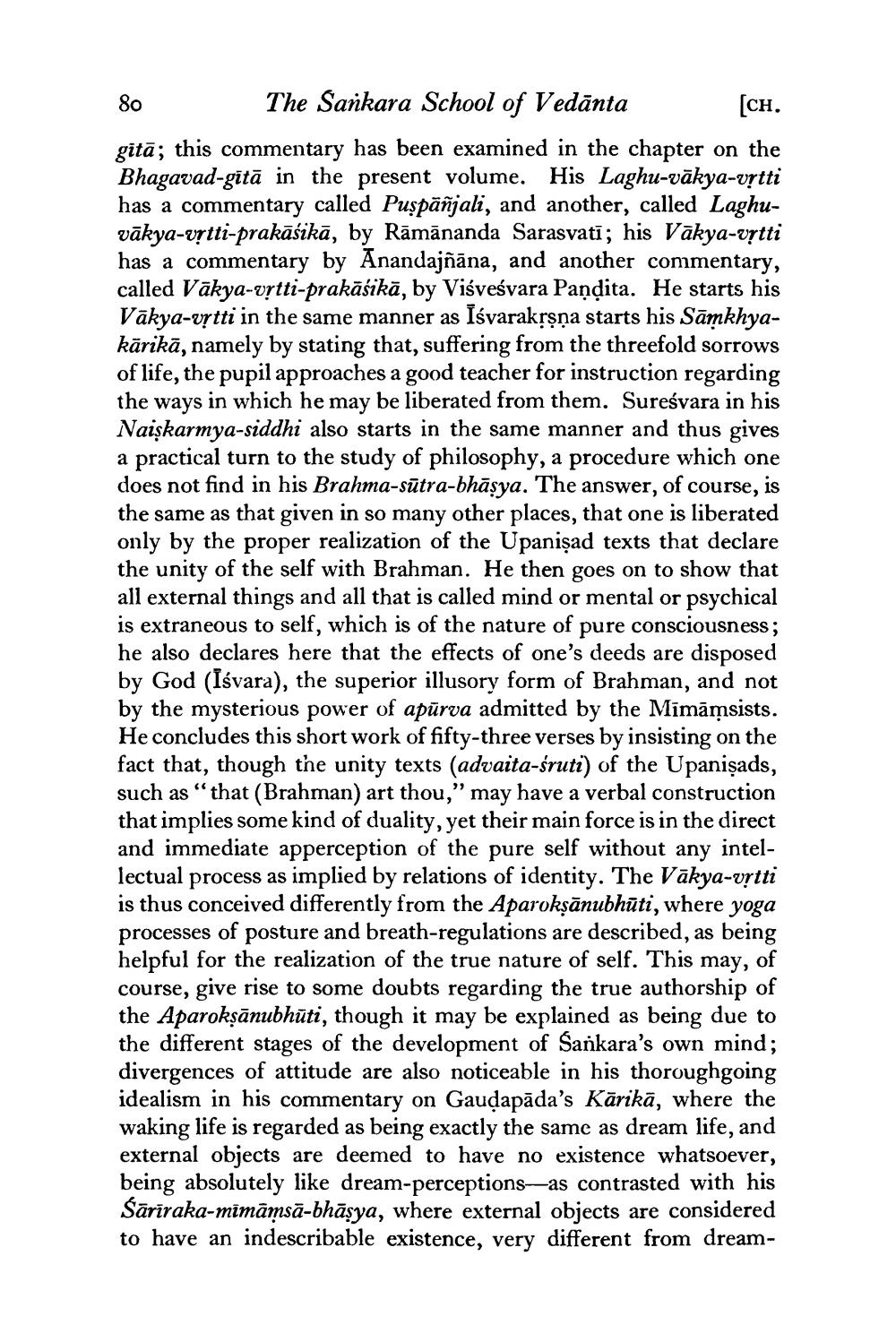________________
80
The Sankara School of Vedanta
[CH.
gitā; this commentary has been examined in the chapter on the Bhagavad-gita in the present volume. His Laghu-vākya-vṛtti has a commentary called Puspañjali, and another, called Laghuvākya-vṛtti-prakāśikā, by Rāmānanda Sarasvatī; his Vākya-vṛtti has a commentary by Anandajñāna, and another commentary, called Vakya-vrtti-prakāśikā, by Viśveśvara Paṇḍita. He starts his Vakya-vṛtti in the same manner as Iśvarakṛṣṇa starts his Samkhyakārikā, namely by stating that, suffering from the threefold sorrows of life, the pupil approaches a good teacher for instruction regarding the ways in which he may be liberated from them. Sureśvara in his Naişkarmya-siddhi also starts in the same manner and thus gives a practical turn to the study of philosophy, a procedure which one does not find in his Brahma-sutra-bhāṣya. The answer, of course, is the same as that given in so many other places, that one is liberated only by the proper realization of the Upanisad texts that declare the unity of the self with Brahman. He then goes on to show that all external things and all that is called mind or mental or psychical is extraneous to self, which is of the nature of pure consciousness; he also declares here that the effects of one's deeds are disposed by God (Iśvara), the superior illusory form of Brahman, and not by the mysterious power of apurva admitted by the Mimāmsists. He concludes this short work of fifty-three verses by insisting on the fact that, though the unity texts (advaita-śruti) of the Upanisads, such as "that (Brahman) art thou," may have a verbal construction that implies some kind of duality, yet their main force is in the direct and immediate apperception of the pure self without any intellectual process as implied by relations of identity. The Vakya-vṛtti is thus conceived differently from the Aparokṣānubhuti, where yoga processes of posture and breath-regulations are described, as being helpful for the realization of the true nature of self. This may, of course, give rise to some doubts regarding the true authorship of the Aparokṣānubhūti, though it may be explained as being due to the different stages of the development of Sankara's own mind; divergences of attitude are also noticeable in his thoroughgoing idealism in his commentary on Gauḍapāda's Kārikā, where the waking life is regarded as being exactly the same as dream life, and external objects are deemed to have no existence whatsoever, being absolutely like dream-perceptions-as contrasted with his Sārīraka-mīmāmsā-bhāṣya, where external objects are considered to have an indescribable existence, very different from dream




